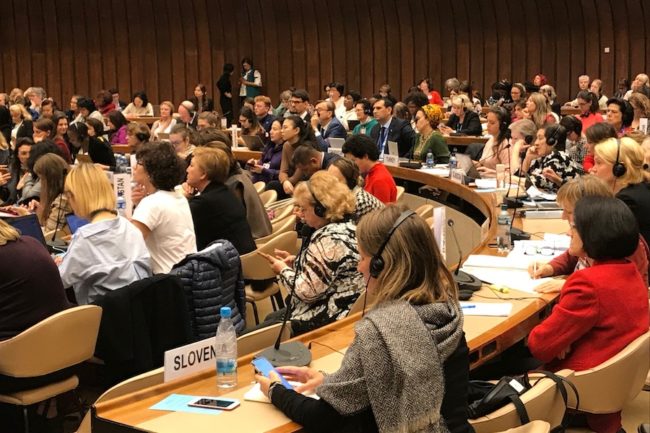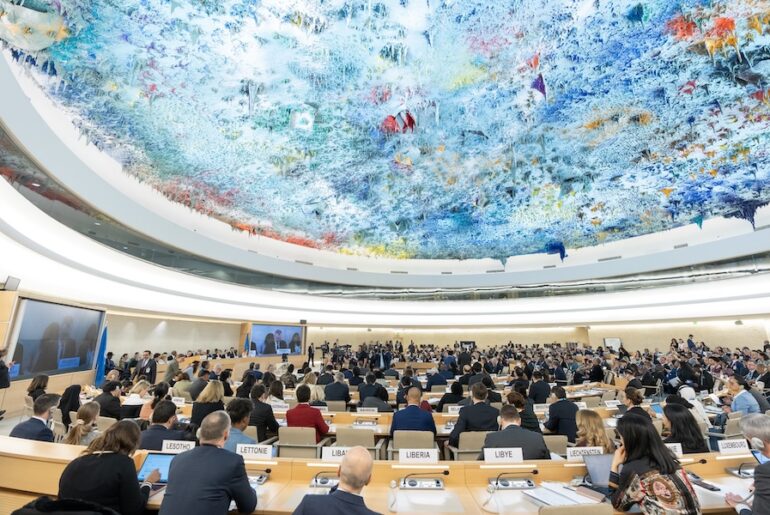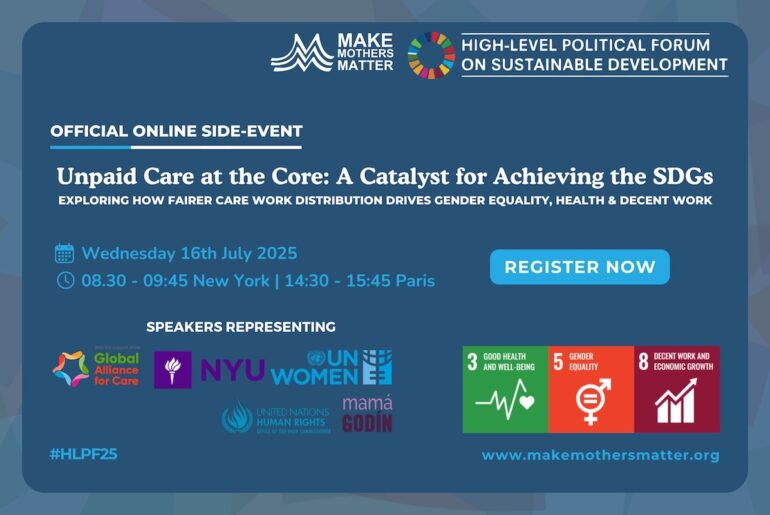Beijing+25 – MMM highlights Motherhood wage gap in discussions on Gender Pay Gap
31.10.19
UN Geneva, Beijing+25 UNECE Regional Review - MMM seized the opportunity to speak at the session on the Gender Pay Gap of the intergovernmental meeting to draw attention to the linkages between motherhood and the Gender Pay Gap.

As part of the session on “Closing the gender gaps: Effective economic and social policies in the UN ECE region”, a panel focussed more specifically on the Gender Pay Gap, the reasons that explain its
persistence and the different policy approaches to close it.
The average hourly Gender Pay Gap remains high at 18% in the region, with large variations across countries – e.g. up to 62.4% in Kyrgyzstan. High Gender Pay Gaps also translate into even higher pension gaps in most countries – for example, 53% in Germany in 2017.
Most of the discussions focussed on the necessary legislative framework, and policies like the mandatory reporting that several countries have started to implement, including France, Switzerland and the UK. The law recently adopted in Iceland that makes external certification mandatory for employers was also hailed as a major step forward. But no one even mentioned the motherhood pay gap.
MMM representative Valerie Bichelmeier, therefore, took the floor following the delivery of the statement of the Women’s Major Group.
A 2016 IILO report clearly shows that wage gaps exist not only between men and women, but also between mothers and women who do not have children.
This Motherhood wage gap is significant to the gender pay-gap issue because studies found that employed mothers are the women that account for most of the gender wage gap. Research shows that hourly wages of mothers are approximately 5% lower (per child) than the wages of women without children.
It has been suggested that mothers earn less than women without children because they are less productive. In fact, they are penalized for going on maternity leave, for possibly not putting in as much ‘face time’ at work as their childless peers, for having to turn down jobs that require overtime, and for daring to ask for part-time work. They are simply victims of the perception/stereotype that women with children are not as much ‘into’ their jobs as others, because they are distracted by the caring and nurturing requirements of their households
To conclude its statement, MMM called on governments
- to recognize that women suffer specific discriminations linked to motherhood (the “motherhood penalty”)
- collect data on the motherhood wage gap
- and take it into account when addressing the Gender Pay Gap.
See also Beijing+25: #FeministsWantSystemChanges – Mothers too
Envisioning care as a common thread to global crises
29.07.24
UN New York - Our virtual HLPF side-event brought together experts to shed light on how the various global crises we face (in particular climate change and other environmental crises,
We call for multi-stakeholder approach to recognise and support unpaid care work
21.07.24
UN New York - Participating in the meeting of the UN Economic and Social Council (ECOSOC) on care and support systems, MMM reaffirmed the principle of co-responsibility, which should underpin
The New EU Gender Equality Roadmap : A Call for Inclusion of Mothers
04.03.25
The European Commission’s initiative on a new Gender Equality Roadmap post-2025, marks a significant step forward in addressing gender disparities across the European Union. Make Mothers Matter (MMM








